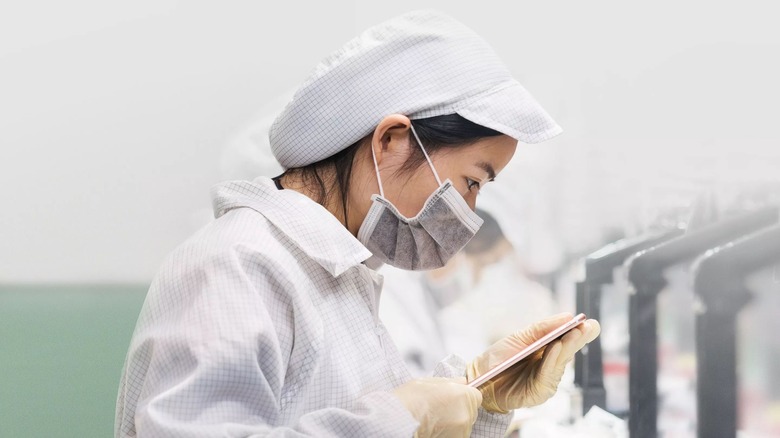Foxconn Protests May Mean 6 Million Fewer iPhone Pros For Apple This Year
For more than 15 years, Apple's business model of outsourcing the manufacturing of its hardware products to factories in China functioned like clockwork, despite occasional controversies surrounding horrible working conditions and concerns about worker rights. As a result, Apple's contract manufacturing partners could largely deliver on their production commitments to Apple even at the height of the COVID-19 pandemic in 2020-2021. However, a resurgence of the virus across China in 2022 — and unrest among contract workers employed at iPhone factories across the country — is now leading to a situation where Apple is likely to miss its production targets for 2022 by a significant margin.
According to a Bloomberg report, the recent string of protests centered around one of Foxconn's biggest iPhone plants in the world means the company could end up with 6 million fewer "Pro" iPhones in 2022. Besides affecting the availability of iPhones during the holiday shopping season, this shortfall could also put a serious dent in Apple's profit margins for the last quarter of 2022.
At the center of this controversy is the Foxconn-run iPhone factory located in the city of Zhengzhou. Widely thought to be the world's largest iPhone factory, this facility churns out the majority of Apple's top-of-the-range iPhone Pro models. However, even before the protests broke out last week, production at this all-important iPhone factory had to be interrupted to comply with China's controversial zero-COVID policy that entails strict lockdowns and long quarantine periods.
Apple expects to ramp up production in 2023
While the rest of the world has made big efforts to curb the pandemic, COVID-19 continues to wreak havoc across China. This is partly due to China's strict lockdown policies in the past that have prevented people from getting booster shots, while also preventing the population from achieving herd immunity (via DW). Despite the adverse effects of the Zero-COVID policy, China seems to be in no mood to relent and relax the terms of this controversial policy. This, unfortunately, means even more uncertainty for Apple and its manufacturing partners, whose overdependence on China is now coming to bite it back.
While Apple and Foxconn may have quelled the protests at their factories, it could be a while before their plants resume production at full capacity. Over the weekend, there have been reports of more widespread nationwide protests (via CNN) in opposition to China's Zero-COVID policy. It is unclear at this time if these wider protests would affect the production of iPhones. While the current shortfall is pegged at 6 million units, this number could change in the weeks to follow — if the company could find enough workers to ramp up production at the Zhengzhou factory, Bloomberg reports. Following last week's protests, Foxconn is reported to have paid each affected worker more than 10,000 yuan ($1400) to quit their jobs and leave the Zhengzhou factory premises.
While things may have temporarily calmed down at Zhengzhou, the recent spate of incidents is likely to accelerate Apple's efforts to ramp up production facilities in countries outside of China. As reported earlier this month, Apple is increasingly considering India as a secondary iPhone manufacturing hub.

